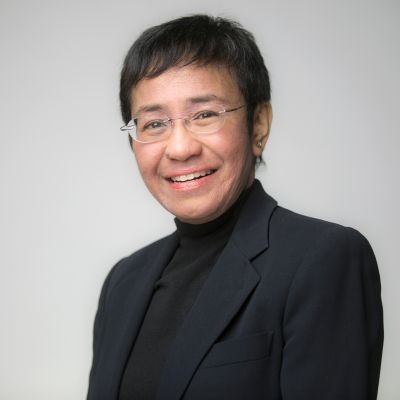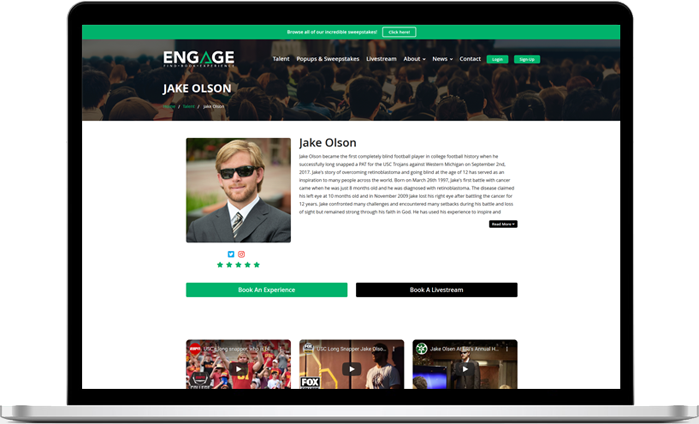Maria Ressa co-founded Rappler, the top digital only news site that is leading the fight for press freedom in the Philippines. As Rappler’s CEO, Maria has endured constant political harassment and arrests by the previous Filipino government headed by Rodrigo Duterte and forced to post bail ten times to stay free. Rappler’s battle for truth and democracy is the subject of the 2020 Sundance Film Festival documentary, A Thousand Cuts.
In October 2021, Maria was awarded the Nobel Peace Prize in recognition of her “efforts to safeguard freedom of expression, which is a precondition for democracy and lasting peace.”
In her talks, Maria connect the dots as to how social media and recent technological developments often deceives and entrenches political power, a dilemma that we all face.
For her courage and work on disinformation and ‘fake news,’ Maria was named one of Time Magazine’s 2018 Person of the Year, was among its 100 Most Influential People of 2019, and has also been named one of Time’s Most Influential Women of the Century.
Before co-founding Rappler, Maria focused on investigating terrorism in Southeast Asia. She opened and ran CNN’s Manila Bureau for nearly a decade before moving to Indonesia and opening the network’s Jakarta bureau, which she ran from 1995 to 2005. That was when she returned to Manila as the senior vice president in charge of ABS-CBN’s multimedia news operations, managing almost a thousand journalists for the largest news organization in the country.
Maria’s most recent book, How to Stand Up to a Dictator, was released in November 2022 and has been translated into 20 languages with more to come in 2024. It is an urgent cry for readers worldwide to recognize and understand the dangers to our freedoms before it is too late.
She is an inaugural Carnegie Distinguished Fellow at Columbia University’s newly launched Institute of Global Politics, where she leads projects related to artificial intelligence and democracy. In July 2024, she will join the faculty of Columbia University’s School of International and Public Affairs as a professor of professional practice.
Maria focuses critical attention on the breakdown of our global information ecosystem and how interconnected communities of action can hold the line to protect democratic values. She now travels the world speaking to organizations of all kinds on democracy, how to keep it, and freedom of the press.
How to Stand up to a Dictator, Maria’s third book, is an urgent cry for readers worldwide to recognize and understand the dangers to our freedoms before it is too late.
Translated into 18 languages, How to Stand up to a Dictator is now available in the U.K. through Penguin Books and available worldwide via Harper Collins.
Maria now travels the world speaking to organizations of all kinds on freedom of the press, democracy, corporate governance and the effects of social media on democracy.



























































"Her remarks were insightful, engaging and inspiring. She explained in a lively and interesting way a very complex and sophisticated story, drawing on current events and data. A real feast for the brain and the heart."
"Her remarks were insightful, engaging and inspiring. She explained in a lively and interesting way a very complex and sophisticated story, drawing on current events and data. A real feast for the brain and the heart."